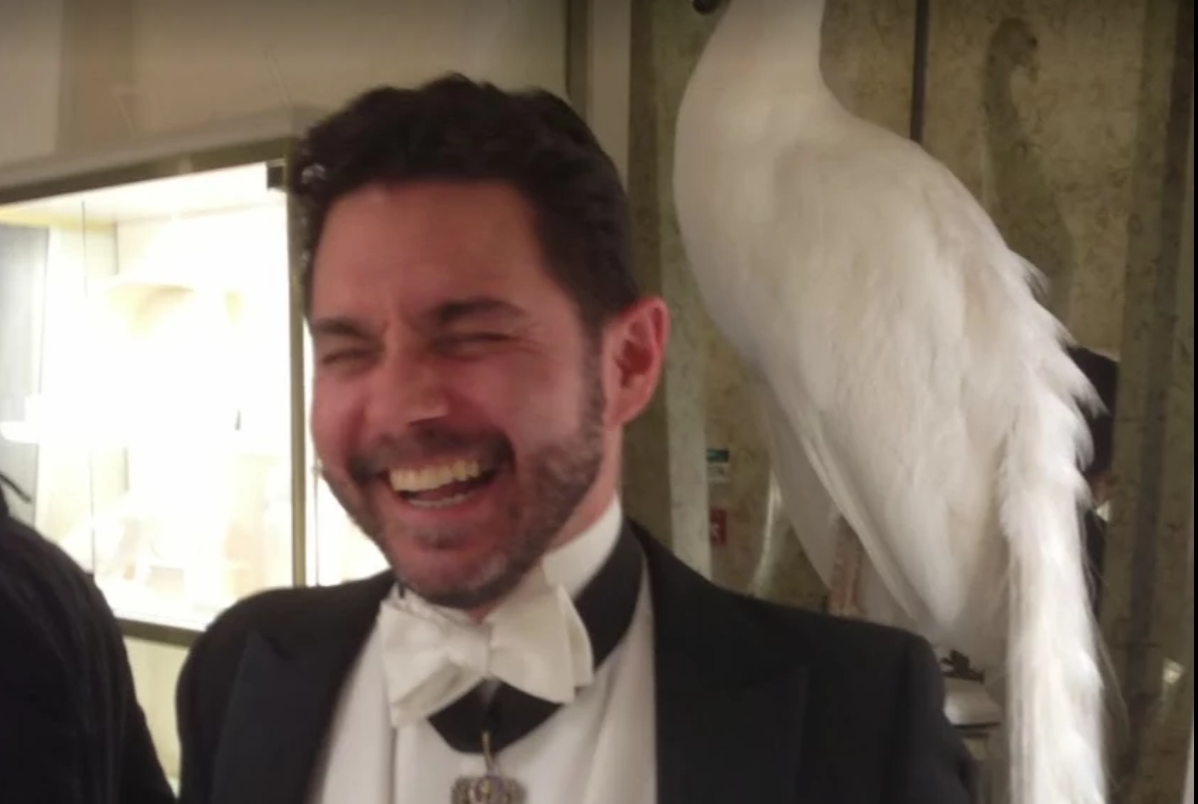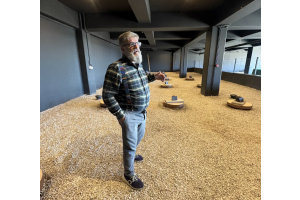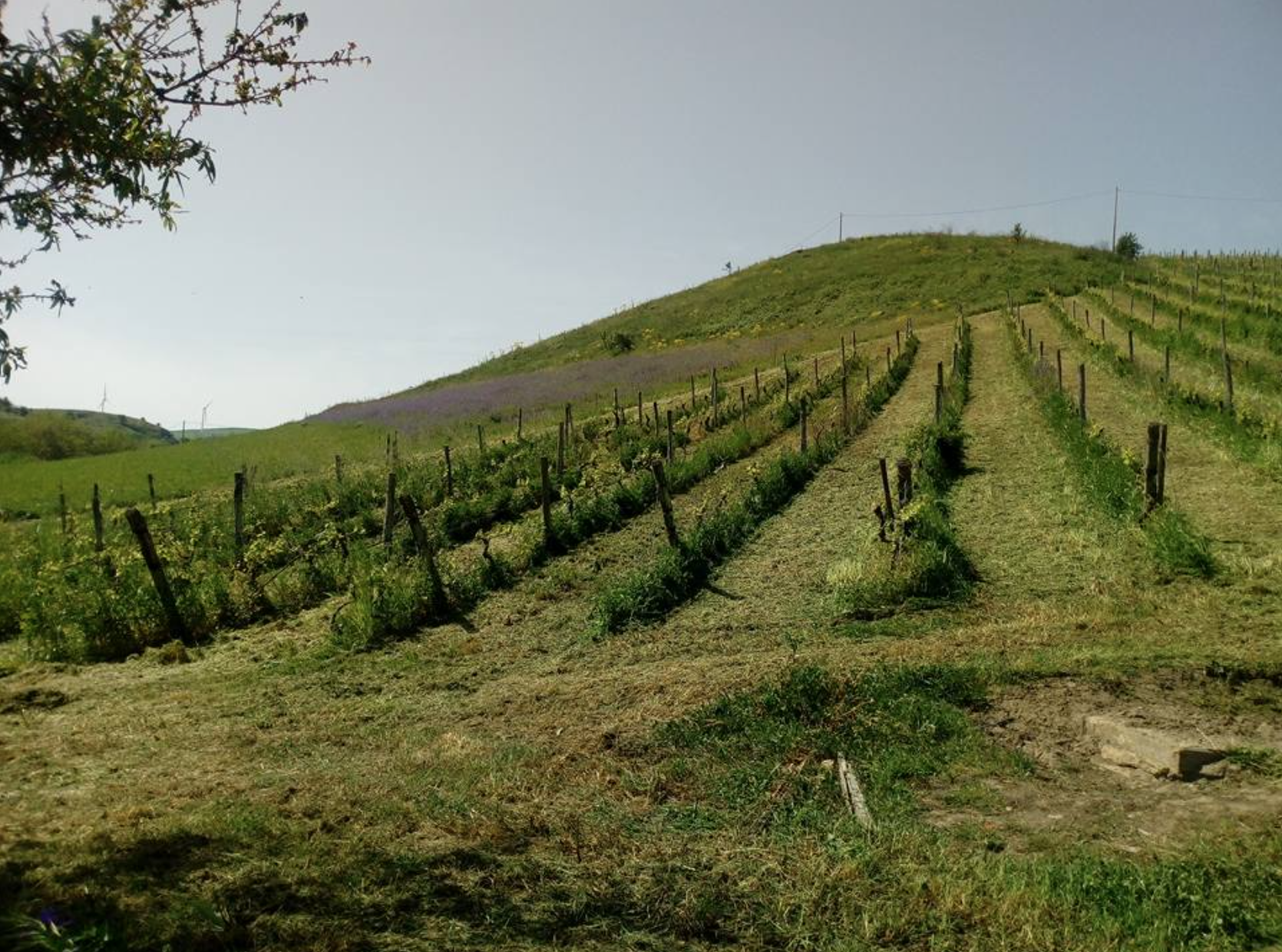
Mastrodomenico Vineyards, in the shadow of Mount Vulture, an extinct volcano, benefits from a rich, chemically complex terroir. The large and looming Mount Vulture rises near the city of Potenza, in the Basilicata region of southern Italy, an increasingly popular tourist destination. The vineyard itself is in the small town of Barile, near its base. It was originally a Greek colony, when the Aglianico grape was introduced long ago. It was next occupied by the Arbëreshë, an ancient people, from what is now Albania.
Making wine from the famous local grape, Aglianico del Vulture, a late ripening grape, Mastrodomenico produces something dark, and full bodied, with substantial flavor; a serious red. We recently e-interviewed Emanuela Mastrodomenico about her family’s winery and their winemaking process. Here is what she had to impart about her work:
Grape Collective: Can you tell us a bit about the history of your winery, and your work there?
Emanuela Mastrodomenico: Mastrodomenico Vineyards was started in 2004, when, after having planted eight hectares of vines in the '80s, we decided to also bottle the wine that we produced. 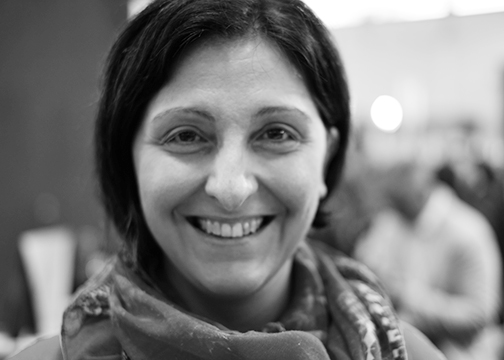 To date, the total production amounts to about 25,000 bottles. After I graduated with a degree in law and refused career opportunities away from my vineyard, I decided to dedicate myself to the promotion and marketing of our wines. It is a very hard job, but it also provides many satisfactions.
To date, the total production amounts to about 25,000 bottles. After I graduated with a degree in law and refused career opportunities away from my vineyard, I decided to dedicate myself to the promotion and marketing of our wines. It is a very hard job, but it also provides many satisfactions.
(Photo, left: Emanuela Mastrodomenico)
Would you please tell us a bit about its location, and the terroir there? Also, would you add something specifically about your volcanic soil, and how it affects the wines you produce?
Our vineyards are located along the west side of Mount Vulture at about 380 meters above sea level, and are dominated from the top by the plain of Lavello, along the dam of Rendina. It is a pristine territory, surrounded by Mediterranean vegetation. The composition of the soil is extremely rich, because before the eruption of the volcano, that area was surrounded by the sea and characterized by a strong iron and limestone component. The wine assumes robust features, but at the same time is refined, mineral, and elegant. Climate is also an essential component. The strong thermal currents, that you have in the summer, day and night, make the grapes of Aglianico of Vulture, very delicate, but at the same time, give it color and vigor.
Can you tell us about the grape varieties you grow, and the wines you produce from them?
The main indigenous grape of Basilicata is Aglianico of Vulture, so we decided to dedicate all our production to this wonderful grape, dividing the areas of our vineyard according to the type of wine we want to get. 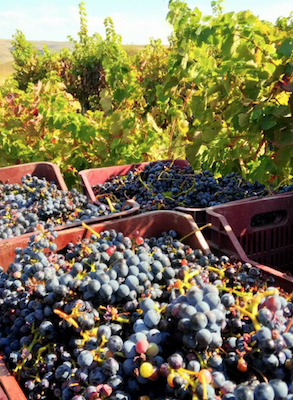 From the top of our vineyards, which are very low yield, and of limestone composition, we produce Likos, which is a vigorous, fine, and elegant wine. Also, if the vintages allow for it, some years we produce a wine from grapes withered on the plant called Shekar. From the lower part of the vineyard, we produce Mos, and a rosé from the Ceraso. They are vigorous wines, but more fruity and fresh because the soils have a majorly iron composition. All the names of my wines come from the historical tradition of Basilicata, and southern Italy.
From the top of our vineyards, which are very low yield, and of limestone composition, we produce Likos, which is a vigorous, fine, and elegant wine. Also, if the vintages allow for it, some years we produce a wine from grapes withered on the plant called Shekar. From the lower part of the vineyard, we produce Mos, and a rosé from the Ceraso. They are vigorous wines, but more fruity and fresh because the soils have a majorly iron composition. All the names of my wines come from the historical tradition of Basilicata, and southern Italy.
(Photo, right: Aglianico grapes at Mastrodomenico)
With that in mind, would you please tell us something about your winemaking philosophy, and how you feel it is different from other winemakers?
Our wines are wines of our region, expressing the identity of our Mount Vulture terroir. A land rich in history and intensity. I do not like to follow the fashions in wine, because in my opinion the wines are the history of the Lucan people. That is why it is important to respect nature and the care of the vines. Only in this way, in my opinion, can you have extraordinary results in the cellar. As well, our cellars are dug into the rock as were those of our grandparents, and we work the wine in an artisanal way, largely by hand.
Would you also tell us a little something about where you see your winery going, and how you see it growing in the future?
In the last few years we have come a long way, with our bottles showing up all over the world. This is the greatness of the wine world. I hope in the future to continue in this way, respecting our land, and I am sure that the earth will reward me for the sacrifices made.
I can only add that Basilicata is a wonderful land, made of authentic flavors and unspoiled nature. I invite all of you to come and visit us.
The University of Salento in the European Traceability Project featuring Mastrodomenico Vineyards.
